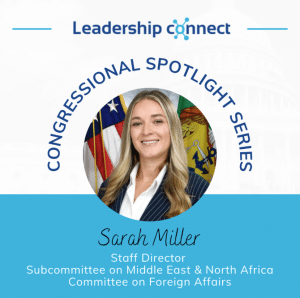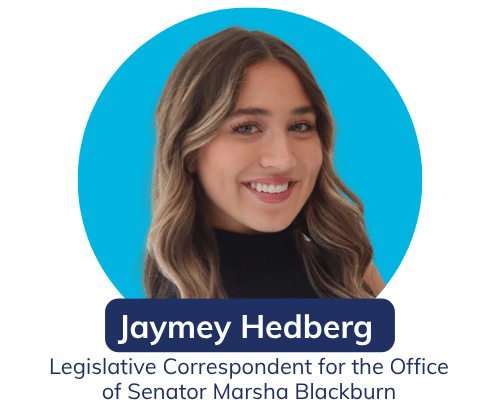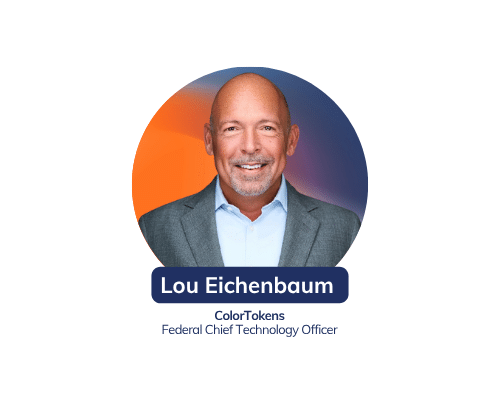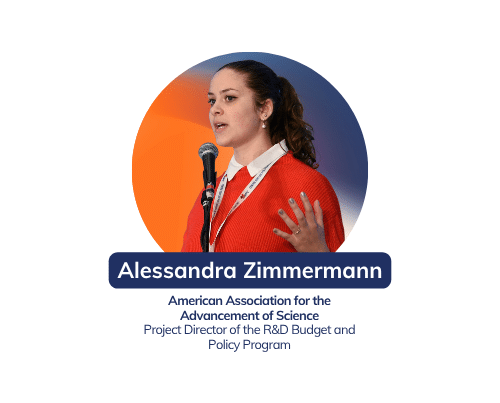Behind the Scenes of Foreign Affairs: Leadership, Strategy, and Regional Impact

This week, we spoke to Sarah Miller, Staff Director for the Subcommittee on Middle East & North Africa, Committee on Foreign Affairs.
Can you walk us through your career path and the steps that led you to your role as a subcommittee Staff Director?
As an undergrad at American University, it was a “rite of passage” to spend a semester interning on Capitol Hill. In 2016, I began my path to Staff Director as an intern in now Secretary of State and former Senator Marco Rubio’s office. From there, I began networking on the Hill for a full-time position and ultimately landed as a Legislative Correspondent in Representative Brian Mast’s office when he was first elected. I spent four years with his office handling a range of policy issues, mostly in the foreign affairs and national security space and left the office as his Legislative Director.
I transitioned off the Hill at the end of 2020 to attend graduate school at Tufts University’s Fletcher School of Law and Diplomacy. While at Fletcher, I served as the Public Policy Associate at Rising Tide Associates (RTA), a boutique public affairs firm focused on defense industrial base policy.
Following my time at Fletcher I spent just over two years working for the Department of Treasury as the Acting Director for the Terrorist Financing Target Center (TFTC), a multilateral center created to strengthen cooperation among seven countries – Bahrain, Kuwait, Oman, Qatar, Saudi Arabia, United Arab Emirates, and the United States – focused on anti-money laundering and countering the finance of terrorism in the Middle East. Following the announcement of Congressman Mast’s Chairmanship of the House Foreign Affairs Committee, I connected with former colleagues and could not pass up the opportunity to return to work for my first full-time employer as MENA Staff Director.
Which policy areas or legislative issues are you most passionate about within the committee’s scope, and how do you stay informed and engaged in those specific areas?
The Middle East is a dynamic region due to its complex interplay of historical, political, economic, cultural, and social factors, which are constantly evolving. Given my background in counterterrorism (CT) and countering the finance of terrorism/terror finance (TF), I am particularly interested in Iran’s terrorist financing activities and support to its proxy groups in the region.
To stay informed I work with the network that I have built over the years and regularly meet with my State Department and other relevant agency colleagues, engage with think tanks that are closely tracking related policy trends and coordinate with bipartisan Hill colleagues on HFAC, in personal offices or on other committees.
In your role as Staff Director, strong leadership is essential for keeping the team motivated and focused on the committee’s agenda, especially when navigating numerous issues. Could you share some strategies or techniques you employ to inspire and motivate your team, ensuring that everyone remains committed to achieving the committee’s objectives despite the challenges they may face?
Some of the best advice I ever received about being a manager was to be the manager you’d want to have.
For me, I really do not enjoy being micro-managed. I think people are more invested when they feel trusted to lead and can have ownership of their project(s). I aim to give my staff clear lanes, but also the freedom to take initiative, develop expertise, and bring forward new ideas. We don’t know what we don’t know!
Also, when the Hill gets chaotic—and it often does—communication is essential and, in my opinion, the key to success.
In your view, what sets working on a congressional committee apart as a unique experience on Capitol Hill, and how do you navigate the specific challenges that come with it in your daily work?
During my time in the Chairman’s personal office, I always looked at being a Legislative Director as being an inch deep and a mile wide. You have your hand in a lot of fires on a lot of different policy issues. What I think is unique about the committee is that I can allow my passion for foreign affairs, particularly in the Middle East region, to be my focus in my day-to-day. I am diving deep into specific issues within the region, coordinating hearings, drafting legislation, and working directly with members and stakeholders on a narrower issue set.
While the workflow and the issue set are intense, especially when you’re prepping for hearings or responding to fast-moving policy developments, having solid project management habits and a team you trust makes it much easier.
Leadership often involves guiding and mentoring others. Could you share a specific example of how you’ve supported the professional development of your team members, helping them grow in their roles and excel in their skill sets?
Supporting the growth of team members is one of the most fulfilling parts of leadership, especially on the Hill, where staff are often juggling steep learning curves, political dynamics, and intense workloads all at once.
Some of the most valuable experiences during my time working on the Hill have been through fellowship opportunities where you can grow your network and listen to and learn from experts within your policy portfolio. I always encourage my team to seek out and take on those opportunities including by forwarding along an opportunity to one of my Professional Staff Members (PSMs) who is actively in that fellowship program!
Word association, what is the first word that comes to mind for each of these?
Policy – Opportunity
Networking – Coffees
Writing Skills – Essential
Working on the Hill – Powerful
Leadership Connect – Resourceful






